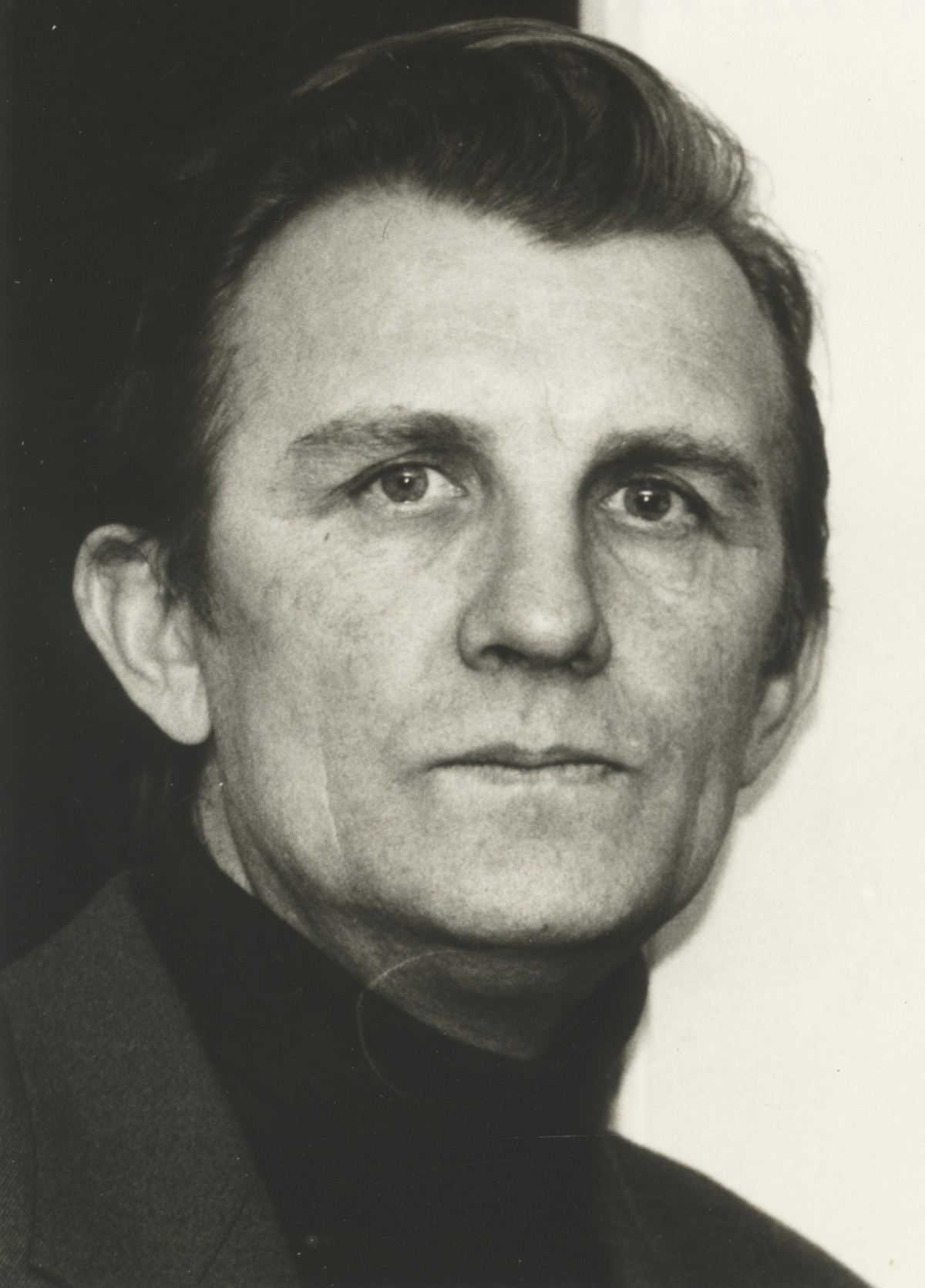
Jaan Kruusvall
Jaan Kruusvall (given name Jaan-Vahur Kruusvall, 7. XII 1940 – 3. IV 2012) was a prose-writer, playwright and commentator.
Kruusvall was born in the village of Eru in Palmse parish, Virumaa county. He attended Võhma primary school from 1948 to 1952, and, intermittently, Loksa secondary school from 1952 to 1960. In 1959-1960 he worked as a labourer at Oruveski, Sagadi and Lehtse, completing his secondary schooling in Rakvere in 1964. In 1966 he entered the Maxim Gorky Literature Institute in Moscow, graduating in 1971. After military service, he worked from 1964 to 1966 and 1974 to 1976 as an administrator and documentary film editor at Tallinnfilm; from 1971 to 1974 he was director of the Võhma village library in Rakvere county, and occasionally as a professional writer; from 1978 to 1981 he was a special correspondent for the paper Sirp ja Vasar and from 1981 to 1987 a fiction editor at the journal Looming. From 1991 to 1996 he was an editor of the Maaleht newspaper, and later a freelance.
Kruusvall made his debut with poetry in the paper Noorte Hääl in 1962 but later concentrated on prose, mainly short fiction. Kruusvall’s stories and studies offer small vignettes of life expressed in a laconic style, some of which have symbolic power. Lõhn (‘The Scent’, 1980) and Rännakul (‘On a Journey’, 1992) won the Tuglas Short Story Prize. Longer prose includes the story of an elderly schoolmaster, Sügisdivertisment (‘Autumn Divertissement’, 1987), written in a calm and epic style.
Kruusvall has earned more recognition from his plays than from his prose; the first of them to reach the theatre were Endine Wunderkind (‘Former Wunderkind’, Drama Theatre, 1979) and Jõgi voolab (‘The River Flows’, Ugala, 1980); among the early plays is also Lammutamisele määratud maja (‘House Condemned for Demolition’, first published in 1979) which remains unstaged. Major theatrical event was the drama Pilvede värvid (‘Colours of the Clouds’, Drama Theatre, 1983) which earned the Juhan Smuul Literary Prize in 1984. Pilvede värvid follows the sense of expectation as events in the war approached the north coast of Estonia in the first half of 1944 – should one emigrate or stay at home fishing and tilling the fields? The drama Vaikuse vallamaja (‘Town Hall of Silence’; staged in Drama Theatre and Vanemuine, 1987) carries on the discussion of the dramatic situation in the recent post-war era, in which council officials have to take a stance on both the Forest Brothers and the deportations. The play Hullumeelne professor (‘The Mad Professor’; Drama Theatre, 1996) proved to be influential in Estonian drama. Kruusvall’s dramas seek the goodness in people and find it in the most difficult circumstances; his dialogues are laconic and offer good opportunities for a dramaturgic sub-text. The play Juba täna, juba homme (‘Already Today, Already Tomorrow’, 1989) looks at the solitude of contemporary people and their sense of stalemate, which cannot be dispelled by short-term, casual relationships.
The film scripts in the book Teekond maailma lõppu. Sipelgarada (‘The Road to the End of the World. The Ants’ Trail’, 1989), pinpoint some painful points in the recent history of the Estonians: the first depicts the homeless, unstable life of a veterinary in the early years of collective farms; the second shows the creation of a new home after returning from deportation to Siberia. Kruusvall’s works in different genres reflect people’s sufferings, joys and deprivations because of new social experiments, pointing out the blurring or absence of perspectives.
I. M. (Translated by C. M.)
Books in Estonian
Short prose
Armastuse esimene pool: jutustused. Tallinn: Eesti Raamat, 1973, 108 lk.
Ma tean mitut inimest: lühijutte ja laaste. Tallinn: Eesti Raamat, 1976, 96 lk.
Katkendeid elust. Tallinn: Eesti Raamat, 1983, 128 lk. [Lühijutte ja -näidendeid.]
Maailmad akna taga: jutte. Tallinn: Eesti Raamat, 1988, 134 lk.
Nokturn järve ääres: jutte ja laaste. Tallinn: Eesti Raamat, 1991, 123 lk.
Olen öösse eksind karjus: tekste 1990-ndaist. Tallinn: Eesti Keele Sihtasutus, 2001, 226 lk.
Sinetavad kaugused: valitud proosat. Tallinn: Eesti Raamat, 2004, 420 lk.
Õhtuvalgus: ühe- ja kahekõned. Tallinn: Eesti Keele Sihtasutus, 2005, 140 lk.
Plays and screenplays
Katkendeid elust. Tallinn: Eesti Raamat, 1983, 128 lk. [Lühijutte ja -näidendeid.]
Jõgi voolab; Pilvede värvid. Tallinn: Eesti Raamat, 1986, 93 lk.
Teekond maailma lõppu; Sipelgarada: stsenaariumid. Illustreerinud K. Tormis. Tallinn: Eesti Raamat, 1989, 109 lk.
Vaikuse vallamaja; Juba täna, juba homme. Tallinn: Eesti Raamat, 1989, 110 lk.
Olen öösse eksind karjus: tekste 1990-ndaist. Tallinn: Eesti Keele Sihtasutus, 2001, 226 lk.
Rabalinnu hõik: lavastamata näidendeid. Tallinn: Eesti Keele Sihtasutus, 2003, 238 lk.
Non-fiction
Jaan Kruusvall, Villi Jahilo, Mets on vend: metsavendlusest Palmse vallas ja ümbruses: dokumentaaljutustus. Tallinn: Eesti Keele Sihtasutus, 2006, 263, lk.



